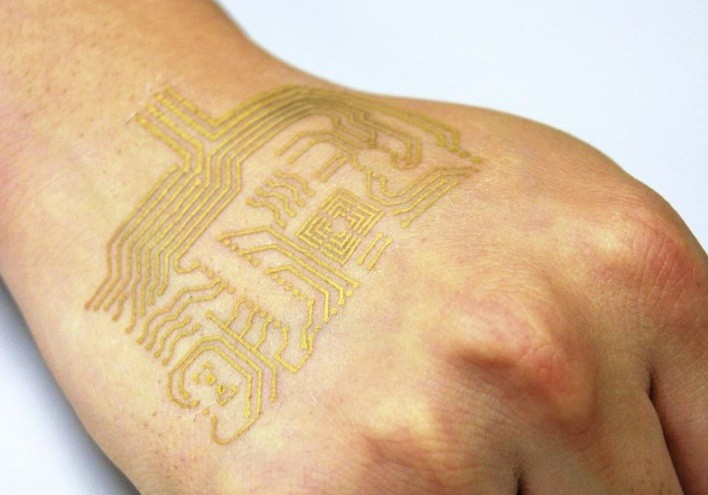Popular Reads
Top Results
Can't find what you're looking for?
View all search resultsPopular Reads
Top Results
Can't find what you're looking for?
View all search resultsResearchers develop thin electronic circuits for skin
Change text size
Gift Premium Articles
to Anyone
U
ltra-thin electronic circuits that can be applied to human skin for extended periods of time have been developed by a team of researchers from the University of Tokyo, Keio University and other institutions.
According to the team, they improved ventilation properties by using nanomesh electrodes to make the circuits. Since the newly developed electronic circuits cause less itching, they are expected to be applied to sensors that measure people’s physical condition in such areas as sports, medicine and nursing care. The team’s paper has been published in the British science journal Nature Nanotechnology.
Sensors that have been developed so far for the skin are made by applying circuits to films or rubber sheets. Since they do not have air or sweat permeability, they can cause inflammation and itching.
The team used a special water-soluble material and developed technology to arrange nanomesh electrodes with fine gaps to make circuits. By spraying gold onto the special material, the team created 70- to 100-nanometer-thick circuits (100 nanometers equal 0.0001 millimeters.)
Read also: Study uses wearable gadgets to detect when lovers’ quarrel will occur
If a user pours water onto the device and applies it to their skin, the special water-soluble material disintegrates and just the circuits remain on the skin. By adding a sensor to measure electrical signals with the circuits, the team succeeded in measuring muscle movements with the device.
They attached the device to the arms of 20 people for a week, and none suffered from inflammation or itching.
“There’s a great need for devices to instantly measure physical data in medicine and other fields. We want to create a system to obtain data without putting a burden on patients,” said Takao Someya, professor at the University of Tokyo and a member of the team.
Toshihide Kamata, director of the Flexible Electronics Research Center of the National Institute of Advanced Industrial Science and Technology, said: “With conventional technologies, users sometimes sweat due to the discomfort of wearing such devices, making it impossible to obtain accurate data. The latest technology is expected to enable the measurement of data in more natural conditions.”
This article appeared on The Japan News newspaper website, which is a member of Asia News Network and a media partner of The Jakarta Post











